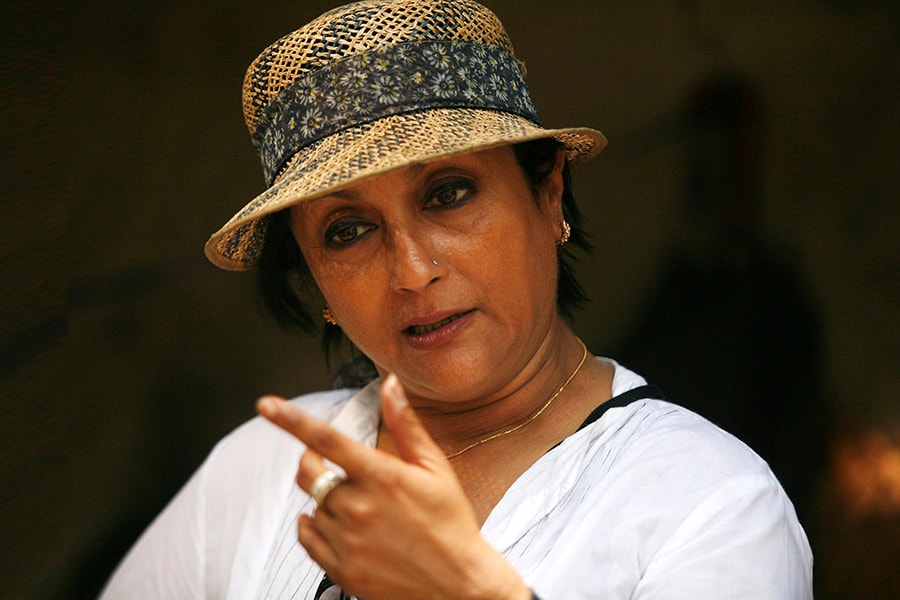
'My films are more about individuals rather than any isms'
Veteran filmmaker Aparna Sen loves her causes but doesn't want to confine her work to them
 Director Aparna Sen
Director Aparna SenImage: Jayanta Shaw / Reuters
Q: From 36 Chowringhee Lane to Sonata, how has the role of women evolved in real life?
Aparna Sen (AS): Earlier, definitely upto the end of the eighties, marriage seemed to the culmination for most women. I don’t think that’s true any longer for the present generation of women. Their work and their careers seem to be their top priority now.
Q: For every character that you’ve crafted on the screen, now and before, how much have you pulled out from your personal life?
AS: One always has to draw on one’s own experience and emotions as well as one’s imagination to make one’s characters ring true. Those are one’s resources, which is not to say that that characters and situations have to be part of one’s biography! For instance, the characteristics of Ms Violet Stoneham [played by Jennifer Kendal] of 36 Chowringhee Lane was drawn from many teachers who had taught us, rather than being modelled on any one teacher.
Q: You’ve mentioned in interviews before that you’d rather be called a humanist than a feminist. Yet, many of your films have portrayed women as the central theme. How conscious are you of this when you choose the subject?
AS: I am strongly interested in many feminist issues such as equal wages for women, trafficking of women, maternity leave and so on. But I am also interested in issues like child abuse or the condition of miners or the murder of whistle blowers. So my feminism is very much part of my humanism. In any case, I like to think my films are more about individuals rather than any “isms”. Many male filmmakers have also made wonderful films with women as central characters. Also, being a woman, it is easier for me to understand a woman’s problems and communicate that. I had considered making the protagonist of 36 Chowringhee Lane a male school teacher, but realised that I didn’t know very much about boys’ schools.
Q: Regional cinema is gradually making its way into the mainstream with films like Sairat and Kabali raking in crores. When do you think Bengali films will be able to achieve such numbers?
AS: The problem is that Bengali films have a limited audience, which is sad considering that Bengali is one the largest spoken languages in the world! But unfortunately, we don’t have the infrastructure to market our films worldwide. If we could have shown our films officially in Bangladesh, it would have helped a great deal, but that has not yet happened. However, I think we should start making Hindi and English language films from Bengal as well as Bengali films. The revenue that would come into West Bengal as a result, would benefit the film.
Q: You’ve been an actor, a director and even an editor (of Bengali magazines). Which role gives you the biggest satisfaction and why?
AS: Undoubtedly film direction. When you are an actor, you are just a part of someone else’s vision. As an editor, you have to follow the basic policies set down by the publisher. But as a film director, at least in my case, you can see your own vision take shape before your eyes.
Q: You debuted in the film industry at the age of 15, acting in Satyajit Ray’s Teen Kanya. For over 55 years, you’ve been associated with filmmaking in various capacities, as an actor, a director, writing screenplays, what have you, and have won numerous awards. What keeps you going and what more are you looking to achieve?
AS: Oh, there are always new mountains to climb!
X





